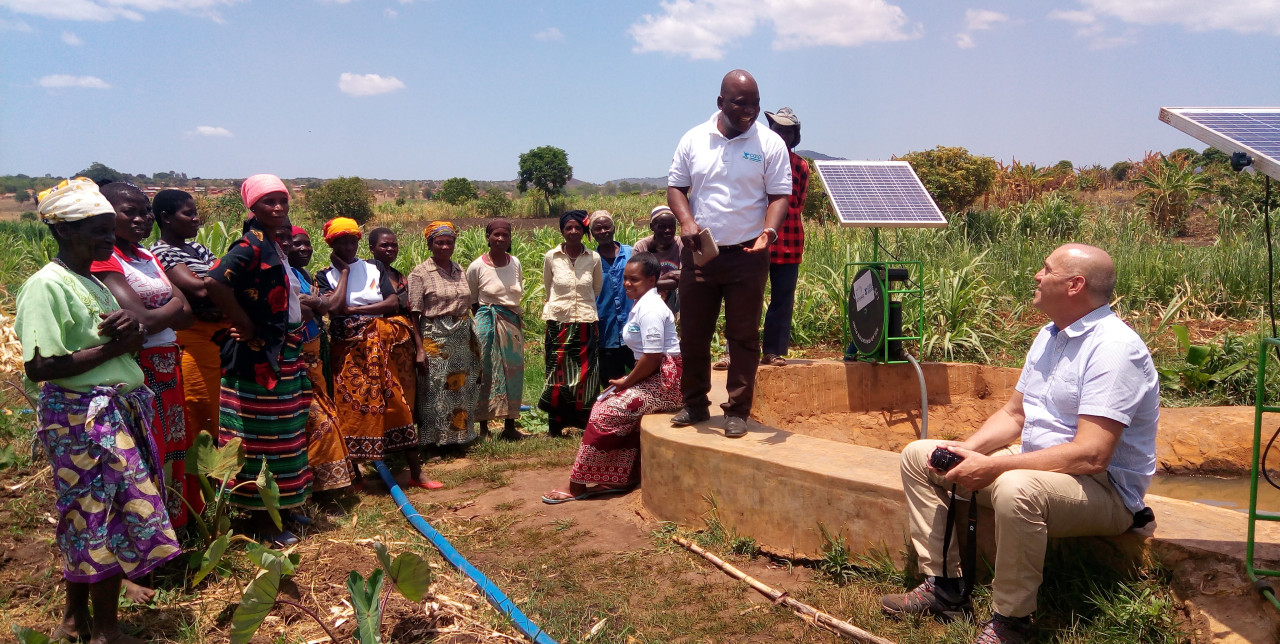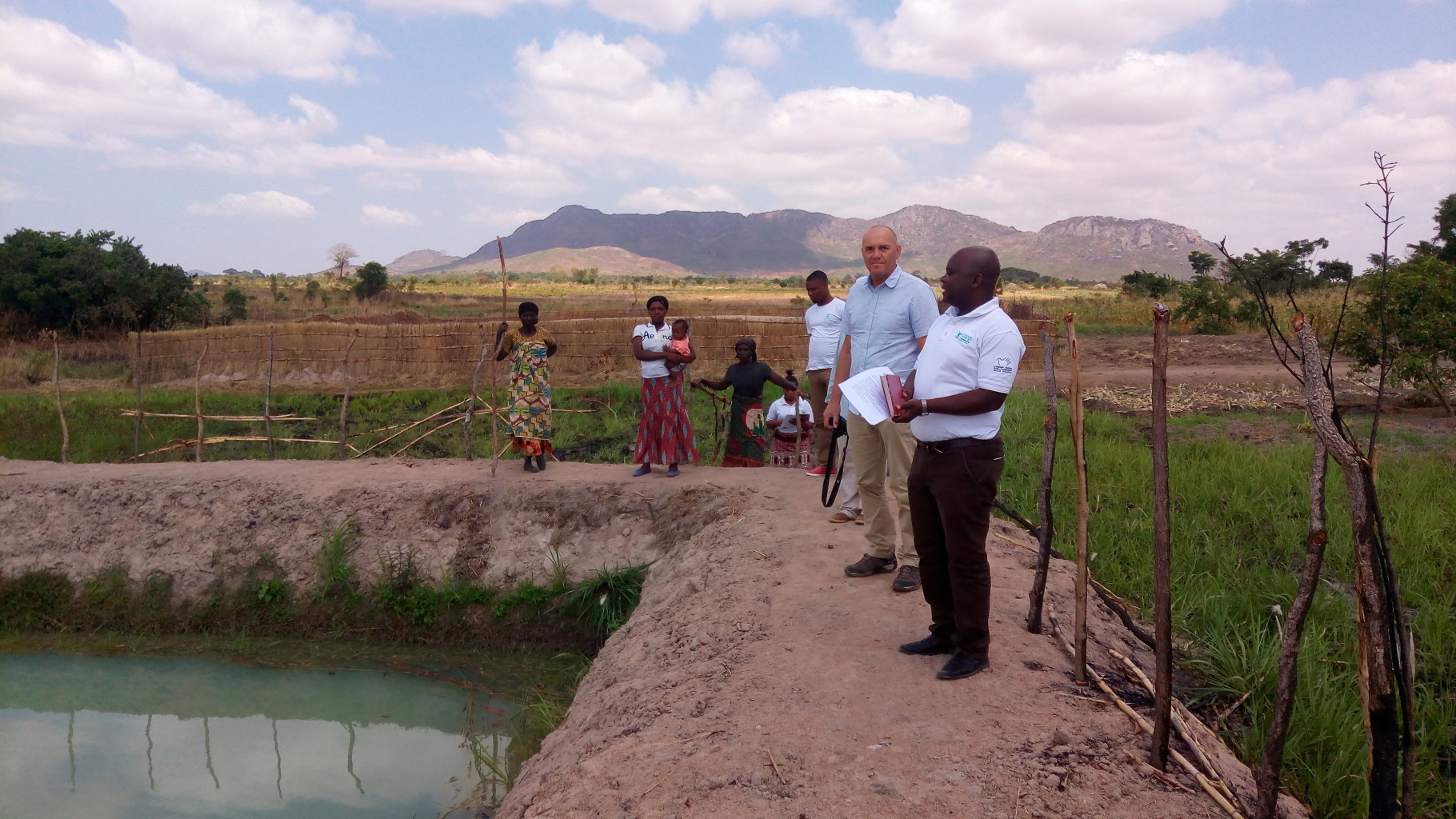23-11-2018 | di COOPI
Malawi: visiting aquaculture activities
From November 12 to November 14 the sites of the Malawi -based project "Mitigate the negative effects on food security and nutrition caused by the prolonged drought experienced by the Niño phenomena" received a visit from its donor, the Italian Agency for Development Cooperation (AICS) in the person of Saverio Frazzoli, Rural Development Expert at the AICS Maputo office, who went there to monitor the progress of the project.
COOPI agronomist Ben Namanya (see gallery below) led him in a visit to the communities where agricultural infrastructures (wells and canals) and aquaculture activities are being built through project activities in some of the areas furthest from the lake in order to increase the protein supply in the diet of the communities.
Aquaculture in Malawi doesn’t always turn out to be easy to implement. COOPI's local experience has shown that, in general, communities along the lake - where it is easier to have plenty of water for the tanks - are not overly interested in this type of farming, as it is cheaper for them to fish in the lake than to use resources to feed and take care of the fish. For this reason, COOPI has selected communities located far from the lake but having fish as a part of their diet. The purpose of doing so is to ensure interest in the development of aquaculture – which is also encouraged by the presence of local markets. Such requirement is compounded by the need for a fairly shallow aquifer and a good supply of water from other sources. Five communities have been selected for their suitability: Chokoja, Tiyamike, Chilonga, Bitikalanje and Mpinji, all located in Mangochi District.
Excavation and construction work for the tanks was carried out in these communities in the first dry phase and completed in December 2017. The tanks were left full of water but without fish during the first rainy cycle, to ensure that they were stable and that the overflow systems worked. The fish were then added in May. One site revealed a lack of water supply for the tanks, due to which the pumps employed for agricultural purposes were used to fill the tanks as well.
During his visit, Frazzoli was able to check the functioning of the structures built during the project: wells, canals and – indeed - aquaculture tanks. The representatives of the communities expressed their gratitude for the help received while also asking for further support, in the hope that this collaboration can continue.




 Malawi
Malawi
